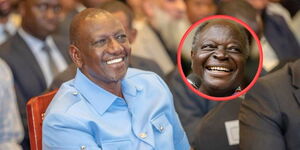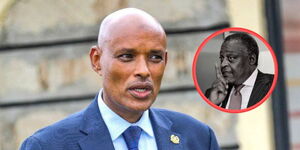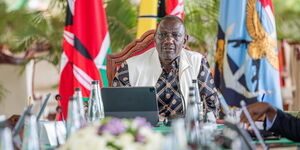The creative economy has submitted its views to the National Assembly on the contentious Finance Bill 2024.
Stakeholders presented their recommendations to the public hearing of the Finance Bill 2024 at the National Assembly.
According to a document undersigned by creative industry captains, the recommendations were collected from over 8,000 stakeholders.
“The undersigned organizations have delivered to the National Assembly our joint memorandum in response to the Finance Bill 2024. The views expressed in this memorandum are the collated views of over 8,000 creative industry members working in various industries including film, performing arts, content creation, music, visual art, literature and even sports,” the statement read in part.
The creatives explained that the industry is a sensitive one and should not be wished away because of its stakes in Kenya’s economy.
“It should be noted that Kenya's creative sector contributes 5% to the national GDP, creates jobs and is a contributor to a happier and healthier lifestyle,” the statement said.
To realise the full potential of the creative economy, they asked the legislators to reject a series of proposals on the bill.
For starters, they want the leaders to reject the proposal to amend the First Schedule of Cap 472- Part II Excisable and increase excise duty on airtime and data complaining that it will erase the growth of the digital economy and directly impact creative business.
“For example, all musicians on SKIZA will now receive less revenue because Skiza is traded in airtime and the payments are made net of applicable taxes. We recommend that VAT and Excise on airtime internet and data be waived as this is not a value-added product,” they explained.
Other proposals include:
The proposal in Section 45 to charge eco levy on video cameras, SD cards, CDs, microphones and other sound recording equipment, projectors and monitors, TV broadcasting equipment and radio broadcasting equipment because this will further increase the cost of doing business in this sector by increasing the cost of inputs.
In Clause 25 (D), they proposed deleting Ksh24,000 per month relief from withholding tax to directly impact the growth of smaller and younger creators working in the sector by making it harder for them to reinvest in their craft. They want it increased from Ksh 24,000 to 50,000 per month.
Further, the creatives want the replacement of 1.5% Digital Service Tax with SEP Tax at 20% of Gross Turnover (The proposal in Clause 8) because the proposal will complicate the business and will also portray Kenya as a hostile market globally.
They claimed that global platforms working in the country would reduce their investment in Kenyan content and this would cause collateral damage in terms of employment in the industry.
In their recommendation, they want a flat tax rate of 6% charged on profits and the VAT currently charged on payments to these platforms to be removed.
Lastly, on sports, the proposal to amend the First Schedule to Cap 470, clause 6 and remove exemptions for amateur sports organizations. The existing exemptions should be expanded in line with the goals of the Talanta Hela initiative by the Ministry of Sports.












